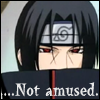Post by athornontherose on Nov 24, 2008 16:01:24 GMT -5
This is something I found in my email and I wanted to share it with you guys:
A Contrarian's Guide: Ten Tips on How to Lose a Poetry Contest
There are many ways to win a poetry contest but rarely does anyone consider the surefire ways to lose a poetry contest. Let's have a look, shall we?
1. Spelling.
There is nothing more disheartening to a poetry contest judge than to finally come across a gem in the rough, only to find a spelling mistake in the last stanza. Entries should be well-polished, as if ready for the press. By the way, unless you work for the DOT, thru does not mean through. So be sure to add a lot of errant thrus to your piece. Additionally, there is no such word as "u". Show the judge you cannot make the effort to type out two more letters, i.e. you.
2. When your messing up you'res.
You're a big poet now, you should know the difference between you're (you are) and your (possessive). While you're at it, unlearn the basics of its (possessive) and it's (it is). This will certainly drive the judge mad.
3. Inging all the ing day long
Barrage the judge with gerunds and you poem will certainly make the rejection heap.
4. Hmmm, what rhymes with "dove?"
Having been involved with amateur poets for almost a decade, I have endured a lot of couplets. In a competition, a couplet (a rhyming poem where the second line rhymes with the first and the fourth rhymes with the third and so on) is typically the signature of an amateur and will not likely win. However, if you are original and clever enough, you may just pull it off. So be careful if you are trying to lose. If you use a couplet as part of your strategy, make sure you use predictable and simple rhymes coupled with trite language.
5. Ignore the meter maid
Rhyme and form poetry has an expected meter and flow. Even free verse typically emulates something of relative tightness with attention to syllable count and line size. Pay no attention to that. Use long run-on sentences with no commas followed by lines of variable size and no semblance of meter. It'll lose every time.
6. As I began to write…
With very few exceptions, a poem that begins with the word "as" won't make it. The exception might be 'as' used in the sense of a simile or metaphor, but rarely are metaphors the commencement of a good poem, they usually have to be built up to. But since the objective here is to lose, avoid metaphors or similes altogether.
7. I feel/see no imagination
Avoid imagery at all costs. If you write, "I feel so sad," I hope it's not in a poem, because I don't want to read it. You don't get to the upper echelons of mediocrity like me without learning to use imagery to describe the aura of emotion about you. Imagery gives the reader something to hinge emotion to; a neglected teddy bear, a soggy tent, a warm ferret, etc. In my opinion, imagery is the most important component in a good poem, not meter or rhyme.
8. Word up! Word down.
If you have developed unique and superior vocabulary, be sure to overuse it, causing the judge to feel dumb as he or she keeps one finger on your poem and the other on an open thesaurus. If you insist on staying simple, then use trite, overused or ambiguous words in your poem. That will have the same effect…YOU LOSE!
9. The Ever-present Ellipsis
Almost nothing says a poet is less sure of their capability to express a whole idea than the use of ellipses (...). They leave the reader wondering if you, as the author, even know where the end of your poem is going. They are not more esthetically pleasing than a period, or a semi-colon. So instead of using proper punctuation and functional line breaks to maintain flow, try trailing your inexperience for all to see like a clothing tag, or toilet paper stuck to the bottom of your pant cuff.
10. YOU TOO CAN BE A CAPS LOCK BANDIT!
THE JUDGE WILL NOT EVEN READ IT, EVEN IF IT IS ALL IN CAPS!
Godspeed and good luck!
A Contrarian's Guide: Ten Tips on How to Lose a Poetry Contest
There are many ways to win a poetry contest but rarely does anyone consider the surefire ways to lose a poetry contest. Let's have a look, shall we?
1. Spelling.
There is nothing more disheartening to a poetry contest judge than to finally come across a gem in the rough, only to find a spelling mistake in the last stanza. Entries should be well-polished, as if ready for the press. By the way, unless you work for the DOT, thru does not mean through. So be sure to add a lot of errant thrus to your piece. Additionally, there is no such word as "u". Show the judge you cannot make the effort to type out two more letters, i.e. you.
2. When your messing up you'res.
You're a big poet now, you should know the difference between you're (you are) and your (possessive). While you're at it, unlearn the basics of its (possessive) and it's (it is). This will certainly drive the judge mad.
3. Inging all the ing day long
Barrage the judge with gerunds and you poem will certainly make the rejection heap.
4. Hmmm, what rhymes with "dove?"
Having been involved with amateur poets for almost a decade, I have endured a lot of couplets. In a competition, a couplet (a rhyming poem where the second line rhymes with the first and the fourth rhymes with the third and so on) is typically the signature of an amateur and will not likely win. However, if you are original and clever enough, you may just pull it off. So be careful if you are trying to lose. If you use a couplet as part of your strategy, make sure you use predictable and simple rhymes coupled with trite language.
5. Ignore the meter maid
Rhyme and form poetry has an expected meter and flow. Even free verse typically emulates something of relative tightness with attention to syllable count and line size. Pay no attention to that. Use long run-on sentences with no commas followed by lines of variable size and no semblance of meter. It'll lose every time.
6. As I began to write…
With very few exceptions, a poem that begins with the word "as" won't make it. The exception might be 'as' used in the sense of a simile or metaphor, but rarely are metaphors the commencement of a good poem, they usually have to be built up to. But since the objective here is to lose, avoid metaphors or similes altogether.
7. I feel/see no imagination
Avoid imagery at all costs. If you write, "I feel so sad," I hope it's not in a poem, because I don't want to read it. You don't get to the upper echelons of mediocrity like me without learning to use imagery to describe the aura of emotion about you. Imagery gives the reader something to hinge emotion to; a neglected teddy bear, a soggy tent, a warm ferret, etc. In my opinion, imagery is the most important component in a good poem, not meter or rhyme.
8. Word up! Word down.
If you have developed unique and superior vocabulary, be sure to overuse it, causing the judge to feel dumb as he or she keeps one finger on your poem and the other on an open thesaurus. If you insist on staying simple, then use trite, overused or ambiguous words in your poem. That will have the same effect…YOU LOSE!
9. The Ever-present Ellipsis
Almost nothing says a poet is less sure of their capability to express a whole idea than the use of ellipses (...). They leave the reader wondering if you, as the author, even know where the end of your poem is going. They are not more esthetically pleasing than a period, or a semi-colon. So instead of using proper punctuation and functional line breaks to maintain flow, try trailing your inexperience for all to see like a clothing tag, or toilet paper stuck to the bottom of your pant cuff.
10. YOU TOO CAN BE A CAPS LOCK BANDIT!
THE JUDGE WILL NOT EVEN READ IT, EVEN IF IT IS ALL IN CAPS!
Godspeed and good luck!







 [/shadow][/glow]
[/shadow][/glow]